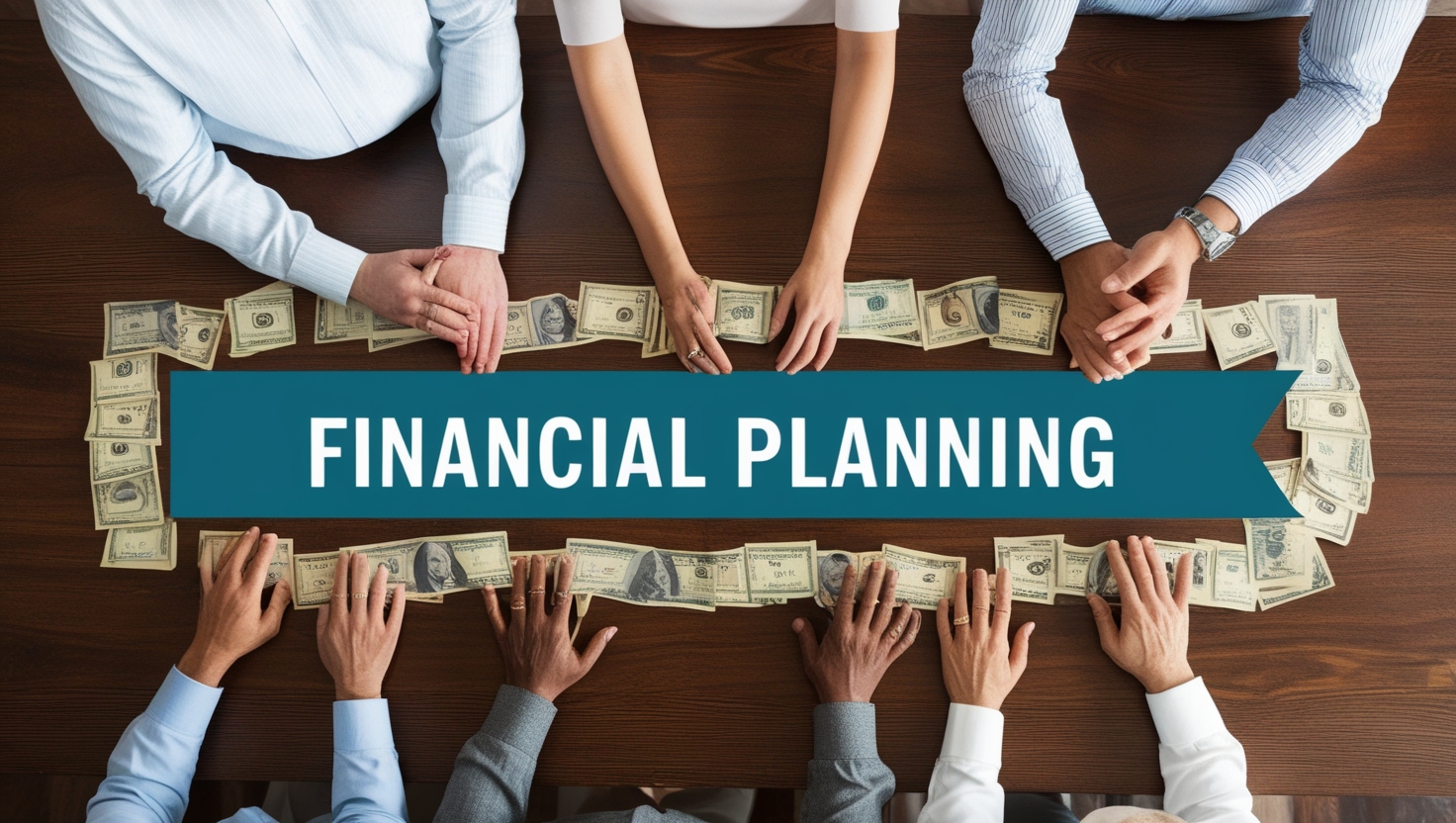مقدمة: لماذا تحتاج إلى صندوق طوارئ عائلي؟
الحياة مليئة بالمفاجآت، وليست كلها سارة. قد تواجه فقدان وظيفة، أو حالة طبية طارئة، أو إصلاحات منزلية مكلفة، أو حتى تعطل سيارتك. في هذه المواقف، يمكن أن يكون صندوق الطوارئ العائلي هو الفرق بين الاستقرار المالي والوقوع في الديون.
صندوق الطوارئ العائلي هو حساب توفير مخصص لتغطية النفقات غير المتوقعة. إنه ليس حسابًا للاستثمار أو الادخار طويل الأجل، بل هو شبكة أمان مالية يمكنك الاعتماد عليها في أوقات الحاجة.
الفصل الأول: تحديد حجم صندوق الطوارئ المناسب لعائلتك
يعتمد حجم صندوق الطوارئ المثالي على ظروفك الفردية، ولكن القاعدة العامة هي توفير ما يكفي لتغطية نفقات المعيشة لمدة 3 إلى 6 أشهر. لحساب ذلك، قم بجمع جميع نفقاتك الشهرية الثابتة والمتغيرة، ثم اضرب هذا الرقم في 3 أو 6.
مثال عملي:
إذا كانت نفقاتك الشهرية 10,000 ريال سعودي، فإن صندوق الطوارئ المثالي الخاص بك يجب أن يتراوح بين 30,000 و 60,000 ريال سعودي.
عوامل إضافية يجب مراعاتها:
- الاستقرار الوظيفي: إذا كان لديك وظيفة غير مستقرة أو تعمل في قطاع متقلب، ففكر في توفير ما يكفي لتغطية نفقاتك لمدة 6 أشهر على الأقل.
- عدد أفراد الأسرة: كلما زاد عدد أفراد أسرتك، زادت النفقات المحتملة، وبالتالي يجب أن يكون صندوق الطوارئ أكبر.
- التأمين: إذا كان لديك تأمين صحي شامل وتأمين على الممتلكات، فقد تتمكن من الاكتفاء بصندوق طوارئ أصغر.
الفصل الثاني: تحديد أولويات النفقات وتخفيضها
قبل البدء في بناء صندوق الطوارئ، من المهم مراجعة نفقاتك وتحديد المجالات التي يمكنك تقليلها. ابدأ بتتبع نفقاتك لمدة شهر واحد على الأقل. يمكنك استخدام تطبيق تتبع النفقات أو جدول بيانات بسيط.
خطوات عملية لتخفيض النفقات:
- تحديد النفقات غير الضرورية: مثل الاشتراكات غير المستخدمة أو تناول الطعام في الخارج بشكل متكرر.
- التفاوض على الفواتير: اتصل بمزودي الخدمات (مثل شركات الاتصالات والإنترنت) وحاول التفاوض على أسعار أفضل.
- الطبخ في المنزل: بدلاً من تناول الطعام في المطاعم، خطط لوجباتك واطبخ في المنزل.
- تقليل استهلاك الطاقة: أطفئ الأضواء والأجهزة الإلكترونية عند عدم استخدامها.
- استخدام وسائل النقل العام أو الدراجة: بدلاً من قيادة السيارة، استخدم وسائل النقل العام أو الدراجة لتوفير المال على الوقود ومواقف السيارات.
الفصل الثالث: فتح حساب توفير مخصص لصندوق الطوارئ
اختر حساب توفير عالي الفائدة وسهل الوصول إليه. تجنب حسابات الاستثمار التي قد تخسر قيمتها في وقت الحاجة.
أنواع الحسابات المناسبة:
- حسابات التوفير عالية الفائدة: تقدم هذه الحسابات معدل فائدة أعلى من حسابات التوفير التقليدية.
- حسابات سوق المال: تقدم هذه الحسابات عادةً معدل فائدة أعلى من حسابات التوفير، ولكن قد تتطلب حدًا أدنى للرصيد.
- الودائع قصيرة الأجل: يمكنك إيداع أموالك لفترة قصيرة (مثل 3 أشهر أو 6 أشهر) والحصول على معدل فائدة مضمون.
نصيحة: قارن بين عروض البنوك المختلفة قبل فتح حساب توفير. ابحث عن حساب يقدم معدل فائدة تنافسي ولا يفرض رسومًا عالية.
الفصل الرابع: إنشاء خطة ادخار منتظمة
حدد مبلغًا محددًا يمكنك ادخاره كل شهر والتزم به. اجعل الادخار أولوية والتزم به حتى قبل دفع الفواتير الأخرى.
طرق فعالة للادخار:
- التحويل التلقائي: قم بإعداد تحويل تلقائي من حسابك الجاري إلى حساب التوفير الخاص بصندوق الطوارئ كل شهر.
- قاعدة الـ 50/30/20: خصص 50% من دخلك للاحتياجات الأساسية، و 30% للرغبات، و 20% للادخار وسداد الديون.
- تحدي الـ 52 أسبوعًا: ابدأ بتوفير مبلغ صغير (مثل 10 ريالات) في الأسبوع الأول، ثم قم بزيادة المبلغ تدريجيًا كل أسبوع.
الفصل الخامس: تسريع عملية بناء صندوق الطوارئ
إذا كنت ترغب في بناء صندوق الطوارئ الخاص بك بسرعة أكبر، ففكر في هذه الاستراتيجيات:
- الحصول على وظيفة إضافية: يمكن أن يساعدك العمل بدوام جزئي أو العمل الحر في كسب المزيد من المال لتوفيره.
- بيع العناصر غير المستخدمة: قم ببيع العناصر التي لم تعد تستخدمها على الإنترنت أو في سوق السلع المستعملة.
- استخدام المكافآت والمدفوعات غير المتوقعة: قم بتخصيص أي مكافآت أو مدفوعات غير متوقعة (مثل استرداد الضرائب) لصندوق الطوارئ الخاص بك.
الفصل السادس: إدارة صندوق الطوارئ بفعالية
صندوق الطوارئ ليس مجرد حساب توفير، بل هو أداة مالية تحتاج إلى إدارتها بفعالية.
نصائح لإدارة صندوق الطوارئ:
- استخدمه فقط للطوارئ الحقيقية: تجنب استخدام صندوق الطوارئ للنفقات غير الضرورية.
- جدد الصندوق بعد استخدامه: إذا اضطررت إلى استخدام صندوق الطوارئ، فابدأ في تجديده في أقرب وقت ممكن.
- راجع صندوق الطوارئ بانتظام: تأكد من أن حجم الصندوق لا يزال مناسبًا لاحتياجاتك.
الفصل السابع: الأخطاء الشائعة التي يجب تجنبها
هناك بعض الأخطاء الشائعة التي يرتكبها الناس عند بناء وإدارة صندوق الطوارئ.
أبرز الأخطاء:
- عدم وجود صندوق طوارئ على الإطلاق: هذا هو أكبر خطأ يمكنك ارتكابه.
- الاستثمار في صندوق الطوارئ: يجب أن يكون صندوق الطوارئ في حساب توفير آمن وسهل الوصول إليه.
- استخدام صندوق الطوارئ للنفقات غير الضرورية: يجب أن يكون صندوق الطوارئ مخصصًا للطوارئ الحقيقية فقط.
- عدم تجديد الصندوق بعد استخدامه: يجب تجديد الصندوق في أقرب وقت ممكن بعد استخدامه.
الفصل الثامن: صندوق الطوارئ والاستثمار: كيف يكملان بعضهما البعض
صندوق الطوارئ والاستثمار هما أداتان ماليتان مهمتان، لكنهما يخدمان أغراضًا مختلفة. صندوق الطوارئ هو شبكة أمان مالية، بينما الاستثمار هو وسيلة لتنمية ثروتك على المدى الطويل.
بعد بناء صندوق الطوارئ الخاص بك، يمكنك البدء في الاستثمار في الأصول التي تتناسب مع أهدافك ومستوى تحملك للمخاطر.
الفصل التاسع: صندوق الطوارئ في الثقافة العربية: نظرة خاصة
في الثقافة العربية، غالبًا ما تعتمد الأسر على الدعم المتبادل في أوقات الحاجة. ومع ذلك، فإن بناء صندوق طوارئ شخصي يمنحك استقلالية مالية ويقلل من الاعتماد على الآخرين.
كما أن الزكاة تلعب دورًا هامًا في دعم المحتاجين في المجتمعات العربية، ولكن صندوق الطوارئ يضمن لك توفير الحماية الذاتية لعائلتك في المقام الأول.
الفصل العاشر: الخلاصة: صندوق الطوارئ هو استثمار في راحة بالك
بناء صندوق الطوارئ العائلي هو أحد أهم القرارات المالية التي يمكنك اتخاذها. إنه يوفر لك راحة البال والأمان المالي في أوقات الحاجة. ابدأ اليوم وخطط لمستقبلك المالي بثقة.
ملاحظة هامة: هذه المقالة هي لأغراض إعلامية فقط ولا تعتبر نصيحة مالية. استشر مستشارًا ماليًا مؤهلاً قبل اتخاذ أي قرارات مالية.




